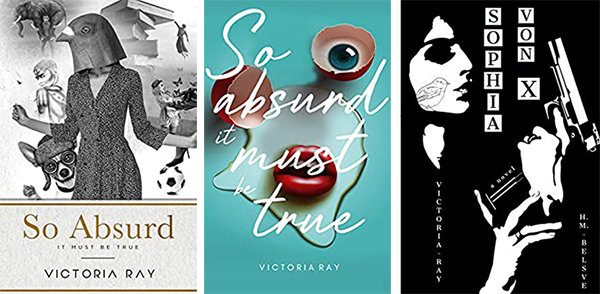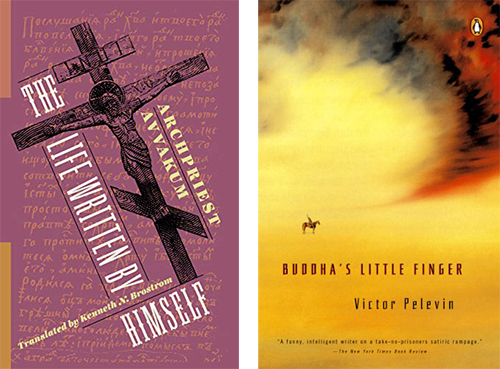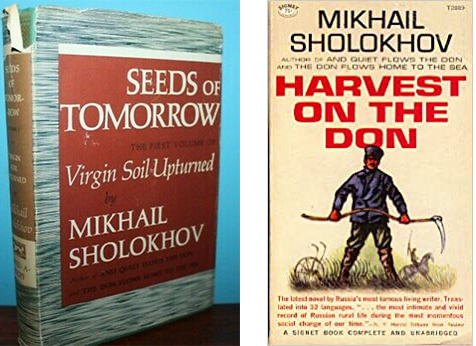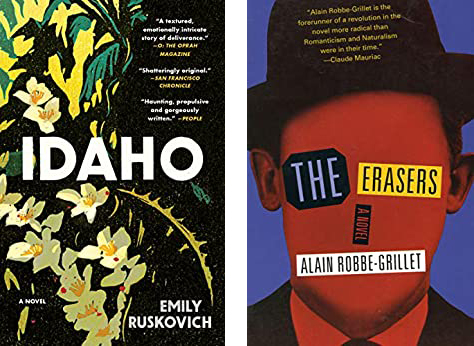Fellow indie author Victoria Ray invited to interview me, and I happily accepted. Also, I offered to interview her, as I was entertained by her two short story collections, So Absurd It Must Be True. I enjoy absurdist fiction, and her short stories are bursts of activity and humor and unpredictable plots.
Victoria posted her interview of me yesterday on her blog. And today, I’m posting my interview of her…
How did you get interested in writing? Which kind of writing — short stories, novels, poems — do you enjoy the most? Why?
The sheer pleasure to hold a pen? Or to see if my pen would create the unique blend of images, or build a new universe, or maybe, because, ‘In the beginning, was the Word?’
I believe writing is a part of our daily life: something – it could be a theme, a hero, an idea, or just the word – invites you, then seduces you, and at the end, absorbs you. It’s impossible to force or to stop. You, me, anyone on this planet is a writer. The only question is: what are you – the talent or a genius? The time will tell… Russian writer David Samoylov brilliantly described it:
“In this minute, a genius is sitting and writing…
In this minute, 100 talented people are sitting and writing.
In this minute, 1000 professionals are sitting and writing.
In this minute 100 000 graphomaniacs are sitting and writing.
In this minute, 1 million lonely girls are sitting and writing.
In this minute, 10 million young people (perhaps in love) are sitting and writing.
As a result of this grand event –
ONE POEM IS BORN. Or a genius, throwing out everything
that has been written in a basket.
And heading off.
… but the world of literature will remember him/her.”
I love writing if it creates the desire to feel, think, and reread. I prefer to write ‘compressed, short’ prose. Why? This is how I perceive the world around me.
I enjoyed reading your two collections of short stories: So Absurd It Must Be True (Book 1 and Book 2). Now I’m enjoying your novel Sophia von X. What did you think of the jump from writing short stories to novels? Was it a difficult transition?
Thank you! It was and still is a difficult transition. I wanted to try to write thrillers or sci-fi, but there’s a chance I’ll stick to absurd fiction, satire, and humor. I’m never sitting and writing the short stories, not in a usual way – it is often written brick by brick, like Lego – with attention on the construction, shape, form, model.
Example: To write the scene, let’s say 2k short story, I need bricks I’d like to use. For that, I’m collecting words, sentences, and phrases. It doesn’t matter how bizarre/wild they are or how out of context – I’ll find the place for them in my chapter or story. That’s why, perhaps, the text seems a bit rough, irregular, abstract, or undeveloped.
Writing the big novel is a different deal. Usually, I’m writing 20k (a core or skeleton), then I’m expanding the text – adding chapters, situations, details. It takes a lot of memory cells – to keep all those details in mind.
Your profile says you have a Ph.D. in classic Russian Literature. Very impressive! How have those studies influenced your writing?
I read and analyzed so many books (from the 11th century to modern fiction) that often, I’m leaving empty-handed at any bookstore. I love being there, though. Ah, all those books! Even if mass media products, those books are magical to me, too; full of messages and endless words. As a teacher of Russian literature, I love words. I can’t say that bookstores are selling boring books, not at all. What troubles me, the writing is nice and clean, but you won’t find any modern Prousts, Diderots, Kafkas, or Cervantes on the shelves.
Lately, many authors trying to come up with some new forms, ideas, word-playing, but still, it is rarely something different from all that what-market-wants-plot-hero-sleek-sameness.
And yes, of course, Russian Literature influenced my writing – from Life of the Archpriest Avvakum (written by himself) to modern surrealist, Viktor Pelevin. In my books, I make a unique mix of everything I know – DJ Ray NB. Welcome to my party!
How does research factor into your writing? Do you pick a topic, then research it, and that leads to ideas for stories? Or is it more often that you have a story idea, and you do research to give it believability?
Each story or novel starts from an image or a scene. When I’m writing a book, sometimes I can research beforehand. The problem with novels – they are so damn long – I see nothing, I forget everything – my mind is blurred. About short stories, usually, I’m working on each for only 2-7 days (max), and I never get back to rewriting after the piece is finished. I have to admit, I dislike rewriting. I see each story as an ‘impression’ of that particular moment/feeling.
The spontaneity and unpredictability in your short stories reminded me of the graphic novel Giraffes on Horseback Salad, which was based on Salvador Dali’s screenplay for a movie he hoped would star the Marx Brothers. Sadly, the movie was never made. Other than authors, what artists or musicians or actors do you see as role models for your writing? Why those artists?
What a fantastic title – ‘Giraffes on Horseback Salad!’
To answer your question: Ye shall make you no idols – my #1 rule
BUT I’d like to mention a couple of ingenious people:
Movies – Louis de Funès (because he is a true joy)
Literature – Teffi (a Russian humorist writer, fascinating lady, died in 1952); Mikhail Sholokhov (Nobel Prize winner 1965, Russian novelist. Seeds of Tomorrow and Harvest on the Don are my favorites: epic dramas); Dostoyevsky (so much passion, madness, and imbalance); O. Henry (fun, intelligent stories with a lesson); W. Thackeray (because of Becky and Amelia; satire, the sketch of English society); Stendhal (because he had more than 100 pen names and visited the city where I grew up); R. Sabatini (adventure and pirates).
Music – anything without words. Or silence.
Art – impressionism.
What’s one work of fiction that moved you deeply? Why did it have that effect on you?
Nothing ‘deeply moved’ me for the last thirty years, but there are modern books that made some splash. I’d like to mention Idaho by Emily Ruskovich. I know a lot of people dislike this book. They want an ‘easy-read’ crime novel. People are simple creatures, we often prefer to be a part of the flock, and in XXI – we are even more ‘simplified’ – more herd-y, I’d say. It means we don’t want to think, imagine, or reflect. Not by ourselves. We want everything to be delivered – given – gifted – placed inside of our minds.
The goal of any novel – to stretch your imagination. Any story/book is a Novel of Uncertainty; remember that. You can retell it the way you wish in your head – and that’s the magnitude, the real value, and the strength of great immortal literature.
One more book I’d like to mention – The Erasers, by Alain Robbe-Grillet: mix of avant-garde and nouveau, literary puzzle in each sentence, bizarre prose, can make you dizzy… I’m still reading it.
Links!
Victoria’s blog, where you can read some of her surreal and funny stories, as well as posts about writing and philosophy and wisdom she’s picked up from reading from various sources.
Victoria’s books on Amazon. In addition to the books I’ve mentioned here, she has published The Pearl Territory (surreal, sci-fi drama), Dulcinea and The Death Code (young adult novel), and two poetry collections.
Also! I want to mention two awards that Victoria Ray has won … Book 2 of So Absurd It Must Be True was a Finalist of the Book Excellence Awards for, and Sophia von X was picked as the Silver Medal Winner in the Fiction – Religious Theme category of the Reader’s Favorite Book Reviews and Award Contest. You can see the awards on her blog’s about page.












